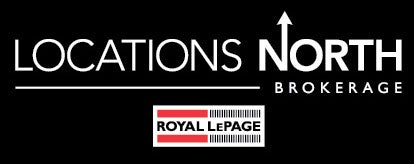Blog post content Buying a condo should feel exciting. not confusing. Whether you’re a first-time buyer, downsizing, or buying on your own again, understanding the basics helps you feel confident from day one.
A healthy reserve fund means the building has money set aside for future work.
A weak reserve fund could mean higher fees later or special charges to owners.We help you understand whether the reserve fund looks strong or risky.
• Building insurance
• Exterior maintenance
• Snow removal and landscaping
• Amenities (gym, pool, etc.)
• Reserve fund contributionsIn Ontario, fees vary by building age, size, and services. We compare fees for you so you’re never caught off guard.
• Are there upcoming repairs or special assessments?
• What do the fees include?
• Are pets allowed?
• Is parking included?
• What is the building’s noise policy?
• Are rentals allowed or restricted?These answers shape how comfortable you’ll feel living there.
• Your income
• Your debt load
• Your credit score
• Estimated condo fees
• Property type (some lenders restrict certain condos)We connect you with trusted mortgage professionals who simplify everything.
How to Buy a Condo in Ontario
The process is similar to buying a house, but with a few extra steps. You’ll need to:- Get pre-approved so you know your price range.
- Choose the right building based on lifestyle, fees, and rules.
- Review the status certificate (more on this below).
- Make an offer with conditions that protect you.
- Work with your lawyer to complete the review.
- Close and move in once everything is approved.
What Is a Status Certificate?
Think of this as the “report card” for the condo. It shows the building’s financial health, any upcoming repairs, rules you must follow, and whether the condo corporation is well managed. Your lawyer reads it carefully to make sure there are no surprises.What Does Reserve Fund Mean?
This is the building’s savings account. The condo corporation uses it to pay for big repairs. roofs, windows, elevators, parking lots, etc.A healthy reserve fund means the building has money set aside for future work.
A weak reserve fund could mean higher fees later or special charges to owners.We help you understand whether the reserve fund looks strong or risky.
Condo Fees Explained
Condo fees are your shared costs that keep the building running. They usually cover:• Building insurance
• Exterior maintenance
• Snow removal and landscaping
• Amenities (gym, pool, etc.)
• Reserve fund contributionsIn Ontario, fees vary by building age, size, and services. We compare fees for you so you’re never caught off guard.
Questions to Ask When Buying a Condo
We help you ask the right things, like:• Are there upcoming repairs or special assessments?
• What do the fees include?
• Are pets allowed?
• Is parking included?
• What is the building’s noise policy?
• Are rentals allowed or restricted?These answers shape how comfortable you’ll feel living there.
Understanding Condo Rules & Bylaws
Every condo has rules that protect the community. They cover pets, smoking, renovations, noise, visitor parking, and short-term rentals. We help you review these so you know exactly what lifestyle each building allows.Condo Pre-Approval Requirements
Lenders look at:• Your income
• Your debt load
• Your credit score
• Estimated condo fees
• Property type (some lenders restrict certain condos)We connect you with trusted mortgage professionals who simplify everything.
